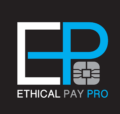[cs_content][cs_element_section _id=”1″ ][cs_element_row _id=”2″ ][cs_element_column _id=”3″ ][cs_text _order=”0″]
Want to accept credit and debit cards in your business? You’ll need a hardware such as a credit card terminal or software such as a payment gateway to accept credit cards. You can obtain these products from a merchant service provider.
A merchant service provider can offer products to accept credit cards along with a merchant bank account.
A merchant bank account is established under an agreement between a business and a payment processor or acquiring bank which allows:
- The business to accept credit card payments
- The payment processor to debit and credit the business’s bank account
Both parties need to abide by Visa, Mastercard, Discover and American Express’s rules.
Here’s a a 30,000 foot overview of what happens when taking payment.
[/cs_text][/cs_element_column][/cs_element_row][cs_element_row _id=”10″ ][cs_element_column _id=”11″ ][cs_text _order=”0″]
How Do I Get A Merchant Account?
[/cs_text][/cs_element_column][/cs_element_row][cs_element_row _id=”18″ ][cs_element_column _id=”19″ ][cs_text _order=”0″]
- Seek out your local bank
- Seek out a direct payment processor
- Open a submerchant account with a popular provider like Paypal, Square or Stripe
- Seek out an independent payment processing broker like Ethical Pay Pro
[/cs_text][/cs_element_column][/cs_element_row][/cs_element_section][cs_element_section _id=”26″ ][cs_element_row _id=”27″ ][cs_element_column _id=”28″ ][cs_text _order=”0″]
Pros and Cons of Each Option
[/cs_text][/cs_element_column][/cs_element_row][cs_element_row _id=”35″ ][cs_element_column _id=”36″ ][cs_text _order=”0″]
Your local bank is just that: local and convenient. There are a few things you’ll need when you open a merchant account, and a business checking account is one of them. If you open a merchant account at your local branch, they may offer free or discounted banking services.
The bad news? Nothing is free, and the cost to accept credit cards may be inflated to cover these services. Another downside is that local banks often only have access to one payment processor or acquirer.
Payment processors often have their own flagship products, and if your local bank doesn’t do business with a certain payment processor, you will only be offered products from one acquirer. There may be another hardware or software product that’s perfect for your business. There may be some honest banks out there that will let you know that product exists and where to find it, but I bet those bank reps are in the minority.
A direct payment processor has the advantage and disadvantage of working with their processors products. They will know their products in and out because they can’t sell another payment processors hardware or software!
A submerchant account can be set up rather quickly by companies like Square, Stripe and Paypal. These companies are also known as aggregators or payment facilitators. Getting set up quickly comes with certain drawbacks
The biggest drawback? Price. The cost to accept credit cards ranges from 1% to 3%. Payment providers that offer submerchant accounts often offer clear and simple pricing of 2.9%
An independent payment processor like Ethical Pay Pro offers the same advantage your local bank or direct processor offers, but has the flexibility to chose the hardware and software that’s best suited for your business.
Ethical Pay Pro also offers education on how payment processing works so you know you’re getting a fair deal.
[/cs_text][/cs_element_column][/cs_element_row][/cs_element_section][cs_element_section _id=”43″ ][cs_element_row _id=”44″ ][cs_element_column _id=”45″ ][cs_text _order=”0″]
Now back to that agreement between a business and a merchant service provider or payment processor
[/cs_text][/cs_element_column][/cs_element_row][cs_element_row _id=”52″ ][cs_element_column _id=”53″ ][cs_text _order=”0″]
The agreement is rather simple. All parties involved need to obey the laws set by the card brands such as Visa, Mastercard, Discover and American Express.
Most simply put, a business can accept a credit card payment for a product or service, and they will get funded by their payment processor.
But! The payment processor reserves the right to retract those funds if the purchaser disputes the charge and claims the product or service was not delivered.
The card brands have laid out rules and regulations that need to be followed. If you don’t follow their rules, your account may be deemed high risk and the processor may be forced to close your account.
Check out the next blog in this series
[/cs_text][/cs_element_column][/cs_element_row][/cs_element_section][/cs_content]
